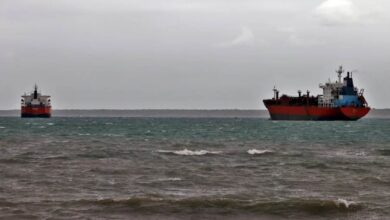This is how the World Economic Forum ended
The 50th edition of the Davos forum ended after five days in which 3000 attendees gathered to discuss the most important issues of world economy.

Flags in the World Economic Forum. / Photo: weforum.org
LatinAmerican Post | Juliana Suárez
Listen to this article
Leer en español: Así terminó el Foro Económico Mundial
In this latest edition of the most important event of the year for the exponents of the global economy, the focus was on sustainability and advances in the Paris Agreement. In the days that the forum lasted, both governments and institutions also discussed technology and corporate governance.
The WEF divided its themes into 7 major axes that served as an engine for all the discussions that took place between countries, organizations and institutions. The topics were:
-
Beyond geopolitics
-
How to save the planet
-
Future of economy
-
Healthy futures
-
Resilient Infrastructure
-
Digital transformation and trust
-
Education, diversity and work
"We have a crisis on our hands…"
The closing video from the World Economic Forum Annual Meeting 2020 #wef20https://t.co/aye2dnr55Y
— World Economic Forum (@wef) January 24, 2020
The importance of preserving the environment as a main topic in an economic forum lies in the role that the financial sector must play in conjunction with civil society and with governments to create policies for care and, finally, lead a sustainable life. That is why, as expected, one of the greatest exponents was the young climate activist, Greta Thunberg, who once again took the reflectors of the day.
In one of her interventions, the Swedish activist rebuked, as she usually does, against governments and the lack of forceful actions in the face of impending climate change. On this occasion, she arrived more upset than usual and reprimanded the same forum, accusing it of ignoring the requests she and her team had made as conditions to attend. (Before we came here we had a few demands for this WEF and of course these demands were completely ignored but we expected nothing less), Thunberg said.
After her strong criticism, Thunberg also stated in an outrageous way that what is beginning to be lived in environmental matters is a 'climate apocalypse'.
Also read: All about the political trial against Trump
With Greta Thunberg on one side of the scale, it also had to highlight one of her greatest critics: US President Donald Trump. In his messages, although he did not go directly against the girl, he did reject the apocalyptic predictions and denounced the 'prophets of doom'.
Davos in data
The World Economic Forum created a digital platform to keep abreast of the information discussed and trends during the meeting. WEF Live connected with Twitter posts to keep track of all the information that was on the web and what were the most discussed topics in the media.
Thus, it was easy to determine which were the topics that were being discussed most in each part of the world, as well as the countries and the main and most mentioned figures in each of the topics.
Among the data obtained from Twitter, the following stand out:
- Donald Trump was the participant who had the most mentions, with 24,606 and the topics that most connected that name of the 7 mentioned above was 'Beyond geopolitics' and 'how to save the planet'. It is also possible to see a map of the places where Trump was most mentioned, the United States being the first.
- Greta Thunberg was the second participant with the most mentions, with 8,839 and the theme on which she stood out was the reference to the environment.
- Switzerland, the United States, and China were the countries that were most mentioned during the days of the event, especially in geopolitical and environmental issues, which were in turn the two most commented topics.
Latin America in the WEF
The recent stagnation of the Latin American economies, as well as the climate crisis in the Amazon and the social protests that have led to political and social crisis in many of the countries, made the region an important topic of discussion during the days of the Forum. For this reason, discussions in the Latin American forums revolved largely around the inequality of the region and the need to combat this to be able to prosper economically for each country as well as the region in general.
Among the highlights of the region was the presence of Juan Guaidó, who is considered the legitimate president of Venezuela for more than 50 countries. In his step, the opposition leader talked about the situation in his country and the need for economic confidence so that the country can get back on track. He spoke of the deputies and other members of the opposition who are being quiet and even sent to prison by the regime of Nicolás Maduro.
Read also: Latin America lives its worst economic moment in 70 years
Meanwhile, during the Forum the report of the countries with the greatest social mobility was published, that is, with the capacity to prosper. For this index, factors such as access to health and education, wages and access to employment were taken into account.
Of 82 countries taken into account, 13 were Latin American and Uruguay was the country in the best positioned region, in box 38. The last was Guatemala, in position number 75.
Likewise, the Forum ended with the news that Colombia will host the World Economic Forum for Latin America that will take place in 2021. This announcement was taken as a recognition of the country's investment policies, fight against inequality, the fourth industrial revolution and investment, according to the president, Iván Duque.
Tuvimos una gran reunión en #Davos con el profesor Klaus Schwab donde logramos para Colombia la sede del Foro Económico Mundial capítulo Latinoamérica para el año 2021. Sigue adelante la confianza en Colombia como destino para la inversión. pic.twitter.com/An1VE4BbFS
— Iván Duque (@IvanDuque) January 23, 2020




